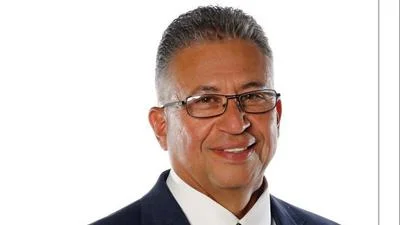New Mexico U.S. Rep. Melanie Stansbury is among a group of legislators pushing Congress to do more to enhance water security for the general public and under-served tribal lands.
An estimated $4 billion in drought funding was included in the Federal Inflation Reduction Act, but Stansbury said more action is needed.
“If we are going to build a more just, equitable and sustainable future for our communities, we have to take action at the federal, state and local level,” Stansbury said in a recent release.
Last month three water-security bills were passed by the House. One of the bills is the WaterSMART Access for Tribes Act. According to a news release, the legislation introduced by a bipartisan group headed by Stansbury, gives the Secretary of the Interior “the authority to waive or reduce cost-share requirements to implement drought and water projects under the Bureau of Reclamation’s WaterSMART program.”
According to the release, the WaterSMART (Sustain and Manage America’s Resources for Tomorrow) program “consolidates several water conservation authorities under the Bureau of Reclamation to support water conservation, water-use efficiency, drought planning, and water reuse and recycling projects.” Yet, since its inception in 2010, fewer than 5% of the projects funded under WaterSMART have involved tribes or pueblos due to cost-share requirements, according to the release.
“Everyone in America deserves access to clean, reliable water,” California Congressman Jared Huffman said in the release. “But the cost-share requirements under WaterSMART are often a barrier for Tribes. Our bill makes the necessary changes so Tribes can access this important federal funding. I’m grateful to Rep. Stansbury for leading the charge.”
Stansbury said addressing the cost-share requirements is, “crucial to responding to drought and the lasting impacts of climate change and decades of underinvestment in Tribal water needs.”
Another bill is the Rio Grande Water Security Act. Its objectives are to coordinate resources to address water-security needs along the Rio Grande River, develop a water resources management plan, increase water conservation, and invest in pueblo irrigation infrastructure.
“The Rio Grande Water Security Act, for the first time ever will provide support for stakeholder-driven solutions across the entire Basin to ensure the Rio Grande can flow for generations to come,” said a release announcing the legislation.
The third bill is the Water Data Act, which will “create a national framework for water data to support innovation and the development of next-generation technologies to empower water managers on the ground.”
More specifically, the Water Data Act would develop innovative water data technologies and tools, make water data accessible to water users and managers, coordinate federal agencies, support partnerships authorized by the Advisory Committee on Water Information, and establish a grant program under the Department of Interior to improve water data partnerships on the state and local levels. The bill would also prompt investment in next-generation data to enhance water management.
Stansbury stressed the importance to pass the bills, beginning with the WaterSMART Access for Tribes Act. “Water is fundamental to the health, well-being, economic, and cultural needs of our Indigenous communities,” Stansbury said in a release. “For far too long, federal programs like the WaterSMART program have included cost-share requirements that have acted as barriers to tribes accessing crucial water infrastructure dollars. This bill addresses those barriers, and along with funding in the bipartisan infrastructure law and Build Back Better Act, will help unlock millions of dollars to support tribal water needs.”









